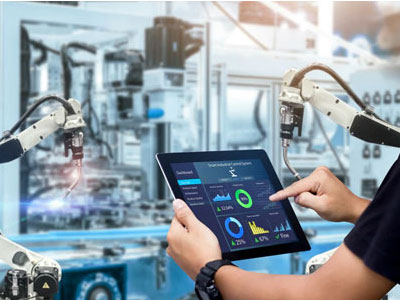Key Takeaway
Industrial PCs are designed with strong security features to protect against cyber threats. They often include hardware-based security to ensure only trusted software runs on the system. Secure boot options prevent unauthorized code from loading during startup. Advanced encryption capabilities protect sensitive data from unauthorized access. These PCs also have robust firewall protections and intrusion detection systems. By using these features, industrial PCs safeguard critical data and maintain the integrity of industrial processes, ensuring safe and secure operations.
Physical Security Measures
Firstly, physical security forms the bedrock of IPC protection. Installing robust enclosures and tamper-resistant housings shields IPCs from unauthorized access or physical damage in harsh industrial environments. Implementing secure mounting solutions and restricted access zones further fortifies these defenses, ensuring only authorized personnel can interact with critical systems.

Network Security Protocols
In today’s Industry 4.0 landscape, ensuring robust network security protocols is paramount for Industrial PCs (IPCs) to operate securely and efficiently. IPCs, which serve as the backbone of modern industrial automation, rely on a combination of advanced measures to safeguard sensitive data and maintain operational continuity.
Firewalls: One of the fundamental defenses, firewalls act as barriers between trusted internal networks and potentially harmful external networks. They monitor incoming and outgoing traffic, applying predefined security rules to prevent unauthorized access and potential cyber threats. By filtering network traffic based on security policies, firewalls help mitigate the risk of malicious attacks targeting IPCs.
Virtual Private Networks (VPNs): VPNs establish secure and encrypted connections over public networks, enabling remote access to IPCs without compromising data security. This technology encrypts data transmissions, ensuring confidentiality and integrity while users access industrial systems from remote locations. By creating a private tunnel through a public network infrastructure, VPNs shield IPC communications from interception and unauthorized access.
In essence, firewalls and VPNs serve as critical components in IPC network security, providing layers of defense against cyber intrusions and ensuring secure connectivity across industrial environments.
Software Security Solutions
Effective software security is indispensable for protecting IPCs against evolving cyber threats that target vulnerabilities in software applications and operating systems. Industrial automation heavily relies on software integrity to maintain operational efficiency and prevent disruptions caused by malware, viruses, or unauthorized software modifications.
Antivirus Software: Deploying robust antivirus solutions is essential to detect and neutralize malware threats that could compromise IPCs. These software programs continuously scan for malicious code, viruses, and suspicious activities, ensuring that industrial systems remain protected from harmful intrusions. Regular updates to antivirus databases enhance detection capabilities, keeping pace with emerging cyber threats in real-time.
Intrusion Detection Systems (IDS): IDS monitor network traffic for suspicious behavior or potential security breaches within IPCs. By analyzing patterns and anomalies in network activities, IDS can promptly identify and alert administrators to unauthorized access attempts or unusual data transmissions. This proactive approach enables quick responses to security incidents, minimizing potential damage and maintaining operational continuity.
Furthermore, application whitelisting plays a crucial role in software security by allowing only approved and authorized software to execute on IPCs. This measure prevents unauthorized applications from running, reducing the risk of malware infiltration and ensuring the integrity of industrial operations.
Access Control Mechanisms
Access control mechanisms are crucial components in industrial process control (IPC) systems, ensuring that only authorized personnel can access sensitive data and functionalities. These mechanisms employ robust authentication methods such as biometric scanners, smart cards, or multi-factor authentication (MFA). By requiring verification of user identities before granting system privileges, IPC security is fortified against unauthorized access attempts.
Role-based access control (RBAC) is a widely adopted approach within IPC environments. It assigns permissions based on job roles, aligning access privileges with organizational hierarchies. For instance, engineers may have access to configuration settings and operational data relevant to their roles, while administrators manage broader system configurations and security policies. This hierarchical access restriction mitigates the risk of unauthorized data exposure or system tampering.
Implementing strong authentication measures is critical in IPC settings, where sensitive operations and data handling require stringent security protocols. Biometric scanners, capable of verifying individuals based on unique physical characteristics like fingerprints or retinal patterns, offer a high level of security. Similarly, smart cards equipped with embedded chips store cryptographic keys and user credentials, enhancing authentication reliability. Multi-factor authentication (MFA), combining two or more authentication factors like passwords and biometric scans, adds an extra layer of security against credential theft or unauthorized access attempts.
Regular Security Audits
Regular security audits are indispensable for maintaining the resilience of IPC systems against evolving cyber threats. These audits involve comprehensive assessments of system vulnerabilities and penetration testing to simulate potential attack scenarios. By identifying and addressing security gaps proactively, organizations can mitigate risks before they can be exploited by malicious actors.
Vulnerability assessments evaluate IPC infrastructure for known security weaknesses, such as outdated software versions or misconfigured access controls. Penetration testing goes further by attempting to exploit identified vulnerabilities, providing insights into the effectiveness of existing security measures and the potential impact of successful cyber attacks. These proactive measures are essential in safeguarding IPC integrity and continuity of operations.
Continuous monitoring of system logs and real-time alerts plays a pivotal role in early threat detection and response. Security teams analyze log data to identify anomalous activities indicative of unauthorized access attempts or suspicious behavior. Real-time alerts notify administrators promptly, enabling swift response actions to contain threats and prevent further compromise of IPC systems. This proactive approach enhances overall security posture and minimizes the impact of cybersecurity incidents on industrial operations.
Conclusion
In conclusion, securing industrial PCs demands a holistic approach encompassing physical, network, software, and access control measures, complemented by regular security audits. By integrating these robust security features, industrial enterprises can fortify their IPC infrastructure, uphold operational continuity, and safeguard critical assets from modern cyber threats.
